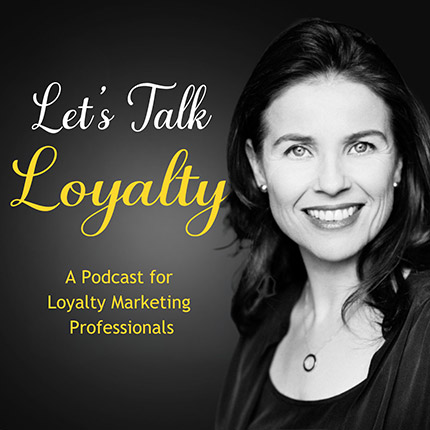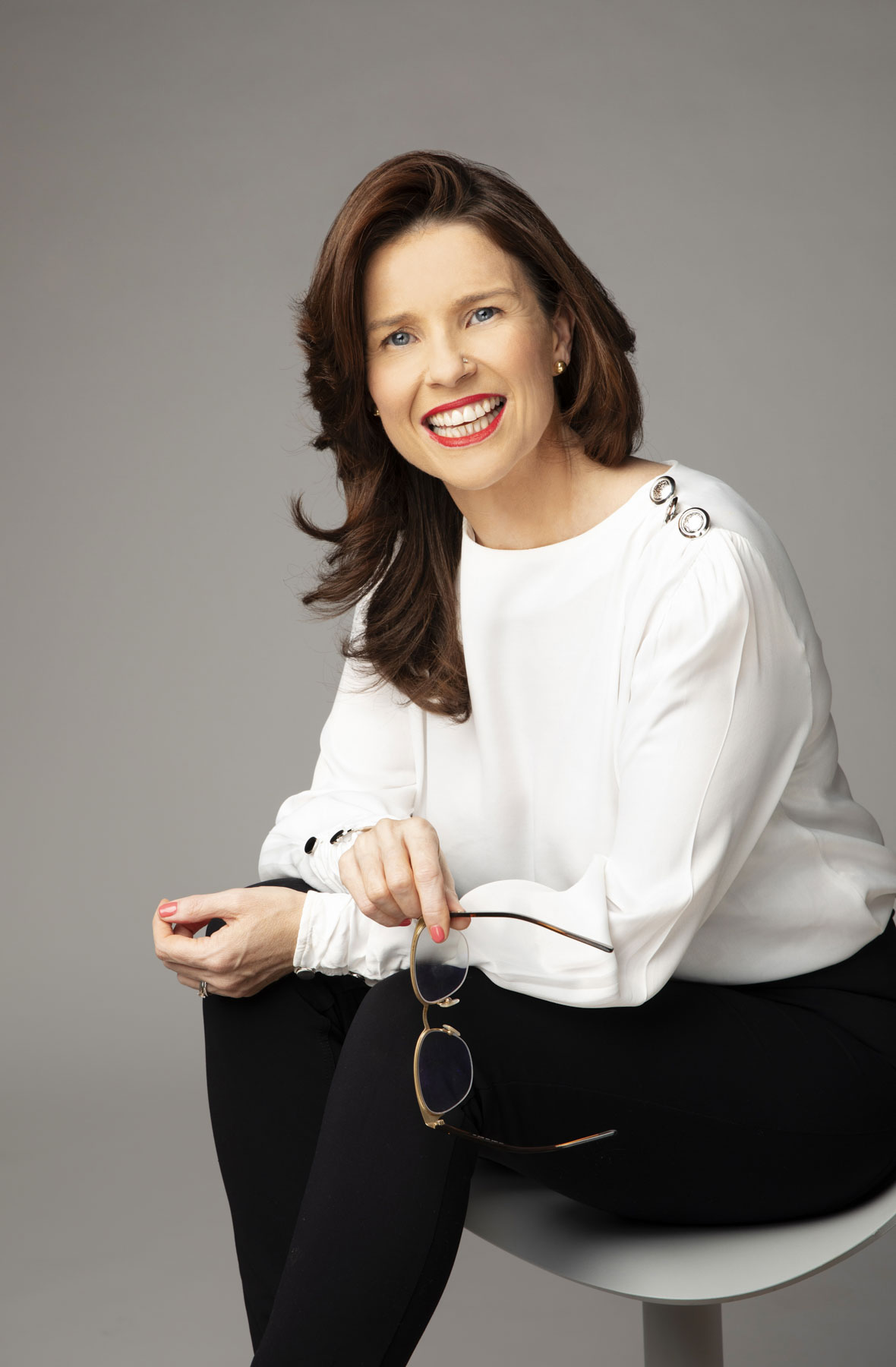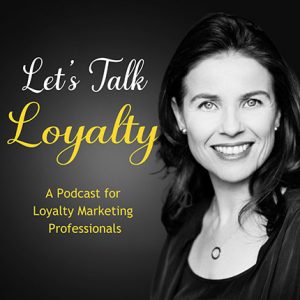Speaker 1 (0s):
Welcome to “Let’s Talk Loyalty”, an industry podcast for loyalty marketing professionals.
I’m your host, Paula Thomas and if you work in loyalty marketing, join me every week to learn the latest ideas from loyalty specialists around the world.
This episode is brought to you by Epsilon on their award-winning Peoplecloud loyalty solution.
Personalization should be integrated into the entire customer experience, including of course your loyalty program. With this in mind, Epsilon recently released a guide outlining six key components that will put you on the path to personalizing your entire loyalty experience. This guide challenges you to do some housekeeping and reconsider how you think about your current and future loyalty personalization efforts. So to download your copy of the report, visit epsilon.com forward slash let’s talk loyalty.
Hello, and welcome to episode 144 of let’s talk loyalty. Today’s short show is a summary of the great conversation I had with Brian Pearson, the former CEO and President of the Loyalty One group of companies in Canada, whose revenues exceed $2 billion.
The group created several significant loyalty businesses, including the air miles coalition program, a loyalty consulting firm, a retail analytics business, as well as a division that specializes in short-term promotional activity on a global basis. Brian was also voted loyalty personality of the year by loyalty magazine in the UK, essentially, and effectively a lifetime achievement award for his services to our industry. In 2012, Brian published a book called the loyalty leap, showcasing everything he had learned about turning customer information into customer intimacy. And even then he described the world as experiencing unprecedented changes, which meant that we as brand marketers had to focus on emotional loyalty versus behavioral loyalty, eight years on. And of course now faced with the global pandemic Brian’s view was that many of the foundational issues that he addressed in his book still remain on addressed. It was a great opportunity then to talk through some examples of customer connection and innovation. Brian was writing about emerging technologies like artificial intelligence and machine learning for leading industry publications like Forbes, and these articles are a great help to marketers, especially loyalty marketers, to think through how customers want to connect with brands in this increasingly fraught world Brian’s book had already outlined some key aspects of human psychology that marketeers can focus on finding solutions to these five foundational fears he identified where firstly, the fear of death. Then the fear of strangers, the fear of the future, essentially the fear of uncertainty, as well as a fear of chaos and finally a fear of being insignificant. And I think we agree that it’s these human fears that have become even more prevalent in the context of the global pandemic. Brian then shared a great example of a favorite case study of his, a small company, which really impressed him a vineyard in Portland, Oregon, that really understands its customers and the context of their fears and was starting to connect with them in new ways that not only help them stay in business, but in fact was opening up a whole new way for them to expand across the country. Brian had already visited this winery in person and he really loved the experience, but now he told me they were taking the opportunity to connect with him in a way they hadn’t done before with travel restricted. Instead they began shipping out their special bottles of wine to particular customers, along with some small sample bottles to allow them to decanter it into several different servings. Of course, customers like Brian then can share the bottle with some friends as part of an online tasting experience in partnership with the vineyard large. It really was a lovely example of a way for people to stay connected, doing something. They love an incredible example of emotional loyalty. And certainly we agreed that this really does the proof that cliche that in some cases, necessity is the mother of invention. The other topic we discussed at length was the coalition model of loyalty and whether or not it is still as relevant in current times as it was in the past. Brian emphasized what an elegant solution. The model has been over the last 25 years, helping like-minded companies create a compelling data asset at a time when technology platforms required huge investment and also loyalty skills were in short supply, fast forward to 2020, and both the technology and the talent are readily available for any brand that wants to make a difference with its customers. As a result markets with existing coalition programs that were built or nurtured over many years like Airmiles and Canada have really become loved by customers who delight in the ability to consolidate their spend and of course earn their rewards faster. But in this day and age, it’s much harder to get a new coalition up and running. So many brands are instead focusing on mutually beneficial partnerships as a better solution, supported by technology that can support loyalty benefits such as simple currency conversions. In closing, I wanted to mention one phrase I really loved from Brian’s book where he suggested that we should abandon the conquest mentality when it comes to customers. Instead he recommends focusing on strategies like community customer experience, and also happily engaged staff who of course then really take care of our customers. These are the ways we can avoid the need to discount, or just rely on developing operational expertise as a differentiator, but really focus on intentionally delighting our customers. Brian was clear in these dramatic times. It will be the purpose led organizations. That will be the companies that win in the long-term that’s it for this short show, sharing some of the conversation and insights from a real leader in our industry. If you’d like to hear the full episode, it’s number 41 with Brian Pearson. So join me again now on Thursday, where I’ll be heading back to South Africa to chat about the latest loyalty white paper reviewing key shifts in consumer behavior in this highly sophisticated and competitive loyalty markets. This show is sponsored by the wise market here. The world’s most popular source of loyalty, marketing news insights and research. The wines marketeer also offers loyalty marketing training through its loyalty academy, which has already certified over 170 executives in 20 countries as certified loyalty marketing professionals. For more information, check out the wise market tier.com and loyalty academy.org. Thanks so much for listening to this episode of let’s talk loyalty. If you’d like me to send you the latest show each week, simply sign for the show newsletter on let’s talk loyalty.com and I’ll send you the latest episode to your inbox every Thursday, or just head to your favorite podcast platform. Find let’s talk loyalty and subscribe. Of course I’d love your feedback and reviews. And thanks again for supporting the show.


